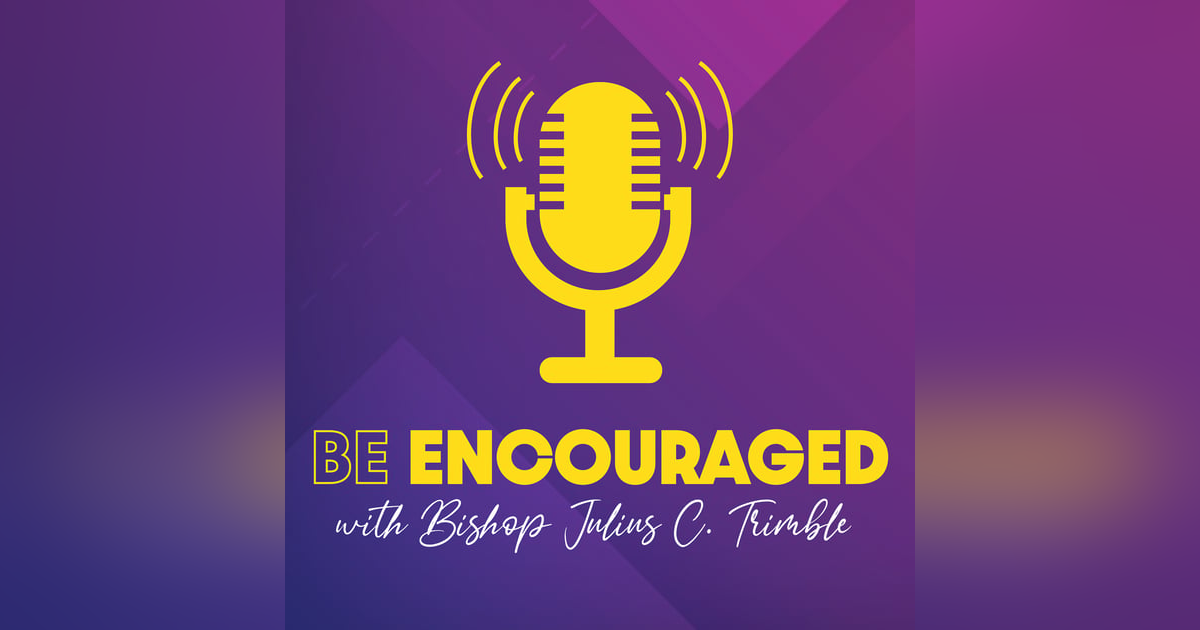InTheKnow: General Conference Highlights

Bishop Julius C. Trimble is the Resident Bishop of the Indiana Area of the United Methodist Church.
Bishop Trimble has the personal mission to encourage all people with the love of Jesus Christ to rise to their highest potential. It is his commitment to his personal mission that led Bishop Trimble to create the “To Be Encouraged” Podcast along with co-host Rev.Dr. Brad Miller.
Bishop Trimble says, “I am compelled by Jesus to share with you an encouraging word or two about Jesus, theology, the Bible, the pandemic, the environment, racism, voting rights, human sexuality, and the state of the United Methodist Church.”
To Be Encouraged with Bishop Julius C. Trimble is to be published weekly and is available at www.tobeencouraged.com and all the podcast directories.
https://www.inumc.org/bishop/office-of-the-bishop/
Episode 105.
Title: Three Significant Takeaways from Post General Conference “InTheKnow” Session
Introduction:
In this episode of "To Be Encouraged," host Rev. 1Justin Kingston engages in a rich conversation with guests Rev. Russ Abel and Rev. Dr. Aleze Fulbright following the General Conference. The episode delves into pivotal changes and key discussions that emerged from the General Conference, offering valuable insights and reflections for listeners.
Takeaway 1: Embracing Inclusivity and Removing Barriers
- The removal of prohibitive language concerning LGBT individuals from the Book of Discipline marks a significant step toward inclusivity within the United Methodist Church.
- Changes in the ordination process now facilitate inclusivity, ensuring that sexuality no longer acts as a barrier to progression.
- The decision to allow same-sex marriages and empower pastors in selecting whom to marry underscores a more welcoming and accepting approach within the church.
Takeaway 2: Regionalization and Constitutional Amendments
- Regionalization emerged as a major topic during the General Conference, with discussions focusing on U.S.-centric matters and ministry context relevance.
- The upcoming vote on regionalization in the annual conference sessions in 2025 raises the importance of education and information sharing to guide decisions.
- The constitutional amendments process, involving all annual conferences submitting information for potential voting, highlights the comprehensive nature of decision-making within the church.
Takeaway 3: Communication, Consensus, and Decision-Making
- Guest speakers stress the significance of open communication with superintendents and congregational dialogue to navigate disagreements effectively.
- Seeking consensus and guidance from God remains a central theme in decision-making processes, guiding pastors and congregations through challenging discussions.
- The emphasis on supporting one another, remaining focused on serving the world's needs, and expressing gratitude underscores the importance of unity and shared purpose within the church.
Closing:
As the episode draws to a close, the profound implications of the General Conference decisions are reiterated, emphasizing the ongoing journey toward inclusivity, unity, and informed decision-making within the United Methodist Church. Listeners are encouraged to engage in open dialogues, seek consensus, and embrace a spirit of inclusivity and understanding as the church moves forward in its evolving landscape.
Rev. Russ Abel Email:ds.eastdistrict@inumc.org
Rev. Dr. Aleze Fulbright central.district@inumc.org


